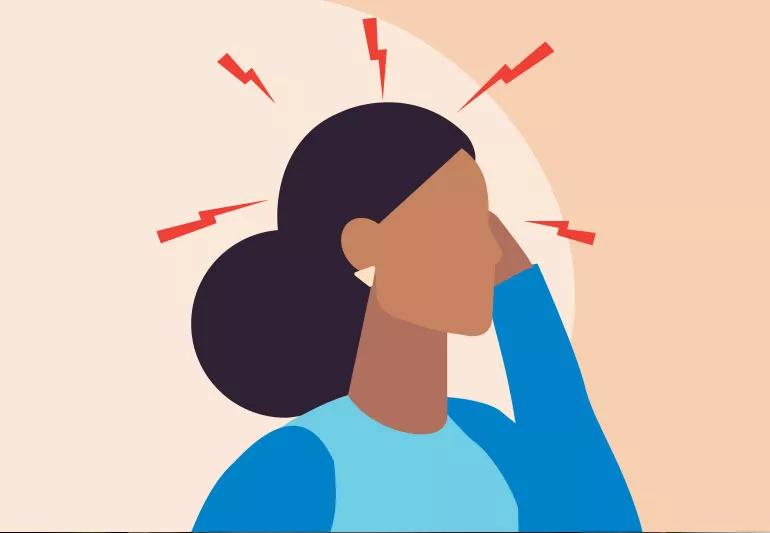This nerve-induced headache requires different treatment

If migraine medication isn’t working, your recurring headaches may not be migraines after all.
Advertisement
Cleveland Clinic is a non-profit academic medical center. Advertising on our site helps support our mission. We do not endorse non-Cleveland Clinic products or services. Policy
Occipital neuralgia, a nerve-induced headache, can be confused with migraine because the symptoms can be similar. They include:
But that’s where the similarities end. Occipital neuralgia and migraines require different treatments because their sources of pain are different. Migraines are related to changes in the brain. Occipital neuralgia is due to compressed or irritated nerves that run from the neck, up the back of the head to the scalp.
“Nerves can become entrapped due to muscle spasms or head or neck trauma, such as whiplash,” says pain management specialist Shrif Costandi, MD. “Sometimes we don’t know what causes it.”
Migraines tend to have identifiable triggers, Dr. Costandi notes. They can be accompanied by visual disturbances and other symptoms that precede the headaches. Occipital neuralgia, on the other hand, does not typically have either of those characteristics.
Pain specialists can identify occipital neuralgia through one or more of these methods:
Advertisement
Taking oral anti-inflammatory medicines is the first step to treating occipital neuralgia. Using heat or massage to soothe tight neck muscles can help as well.
If those treatments don’t provide relief, interventional pain specialists can perform an occipital nerve block. That’s when a local anesthetic and steroid are injected around the irritated nerve.
“Pain relief can last from several weeks to several months, and sometimes the pain doesn’t come back,” says Dr. Costandi.
If your headaches have persisted for more than three months and have not responded to conventional treatments — including migraine medication — it’s time to see a doctor.
Advertisement
Learn more about our editorial process.
Advertisement

Drowsiness is a side effect of inflammation, disrupted sleep and, sometimes, your allergy medicine

Eat fruits, vegetables, legumes, whole grains, lean proteins and healthy fats to help manage symptoms of this degenerative brain condition

When the familiar suddenly feels unfamiliar, it could be nothing — or something worth noting

Déjà vu is a fleeting, false memory — it can be harmless or a sign of something more

This child development strategy is all about meeting your child where they are

Current research suggests 1 of every 31 children in the U.S. has ASD — and that’s probably an undercount

Poor air quality, pesticides and chemicals — along with genetic factors — can increase your risk of this brain condition

The ‘Six Pillars of Brain Health’ offers a game plan to maintain cognitive function

If you’re feeling short of breath, sleep can be tough — propping yourself up or sleeping on your side may help

If you fear the unknown or find yourself needing reassurance often, you may identify with this attachment style

If you’re looking to boost your gut health, it’s better to get fiber from whole foods